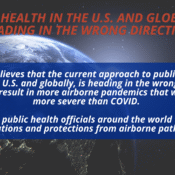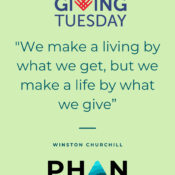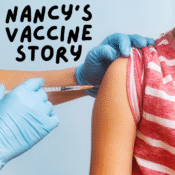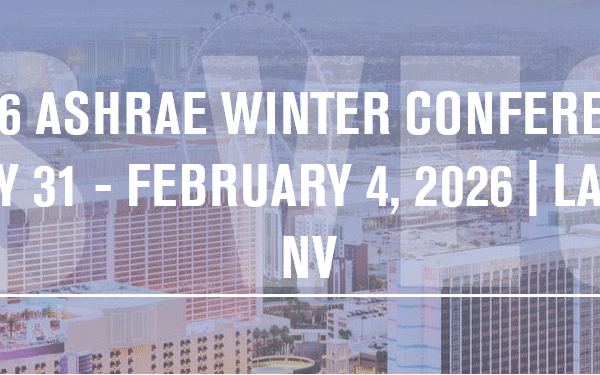Why We Should Still Care About COVID-19: A Guide to Individual, Community, and Future Health
It’s been years since COVID-19A disease caused by the SARS-CoV-2 virus, leading to respiratory illness. emerged, and while much has changed, there are still plenty of reasons to keep caring about it. In the midst of “pandemicA global outbreak of a disease. fatigue,” it’s easy to feel like COVID-19A disease caused by the SARS-CoV-2 virus, leading to respiratory illness. is yesterday’s news. However, as a society, we’re still grappling with the long-term impact of this virus. Caring about COVID-19A disease caused by the SARS-CoV-2 virus, leading to respiratory illness. today isn’t just about protecting ourselves in the present; it’s about taking actions that safeguard our communities and prepare us for an uncertain future.
Let’s break down why it’s worth caring about COVID-19A disease caused by the SARS-CoV-2 virus, leading to respiratory illness.,individually, for the community, and for the unknown effects it may have down the road.
1. Why COVID-19 Matters on an Individual Level
For most people, COVID-19A disease caused by the SARS-CoV-2 virus, leading to respiratory illness. can be unpredictable. While some may experience mild symptoms and recover quickly, others face severe illness, hospitalization, or long-term complications. Even people with mild initial symptoms can develop “Long COVIDPersistent and new symptoms following recovery from acute COVID-19. More,” a chronic condition that includes fatigue, brain fog, joint pain, and other debilitating symptoms that last for months or even years. This isn’t just limited to high-risk individuals,healthy young adults are also susceptible.
Moreover, COVID-19’s ability to dysregulate the immune system and impact multiple organs means that it’s not just a respiratory infection; it’s a virus that can have effects on the heart, brain, blood vessels, and more. As research has shown, even mild cases can lead to cardiovascular issues, cognitive decline, and immune system abnormalities. Taking steps to avoid infection, like staying up to date with vaccinations, masking in crowded places, and improving indoor ventilationThe process of circulating air to improve indoor air quality., helps protect our health and reduces the risk of facing potentially life-altering complications.
2. COVID-19 and the Community: Why We Should Care About Each Other’s Health
Community care has always been a vital part of public health. When we consider how our actions affect others, we build a stronger, healthier society. COVID-19A disease caused by the SARS-CoV-2 virus, leading to respiratory illness. is highly contagious and can spread easily in crowded or poorly ventilated spaces, which means that individual actions,like choosing to stay home when sick, wearing a mask, and practicing good hygiene,have a direct impact on those around us.
By taking preventive steps, we’re protecting vulnerable members of our communities, including the elderly, immunocompromisedHaving a weakened immune system, increasing susceptibility to infections. individuals, and those who cannot be vaccinated for medical reasons. For example, school teachers, healthcare workers, and essential workers are at a higher risk due to frequent exposure. By practicing COVID-19A disease caused by the SARS-CoV-2 virus, leading to respiratory illness. precautions, we reduce the spread and help protect the people who take care of us. Community care also means supporting policies that improve air quality in schools, workplaces, and public buildings, which benefits everyone, not just during the pandemicA global outbreak of a disease. but as a standard for public health.
Supporting each other isn’t just an abstract idea,it’s a tangible way to keep COVID-19A disease caused by the SARS-CoV-2 virus, leading to respiratory illness. from overwhelming our healthcare systems and maintain a healthy, functioning society.
3. Future Uncertainties: Learning from the Legacy of SARS-CoV-1
COVID-19A disease caused by the SARS-CoV-2 virus, leading to respiratory illness., or SARS-CoV-2The virus responsible for the COVID-19 pandemic., belongs to the same family as SARS-CoV-1, the virus responsible for the SARS outbreak in 2003. Although SARS-CoV-1 was contained relatively quickly, researchers continued to monitor its effects on survivors long after the acute phase of the disease. What they discovered was alarming: many SARS survivors faced lasting lung damage, chronic fatigue, and immune complications for years. These findings underscore the potential for lasting effects that we may not fully understand until much later.
The long-term impact of COVID-19A disease caused by the SARS-CoV-2 virus, leading to respiratory illness. is still being studied, but early findings indicate that SARS-CoV-2The virus responsible for the COVID-19 pandemic. may also leave lingering health issues. This virus could have future implications on chronic diseases, mental health, and even neurological conditions. We won’t fully understand these impacts until more time has passed, but by taking COVID-19A disease caused by the SARS-CoV-2 virus, leading to respiratory illness. seriously now, we’re reducing our collective risk of facing a new wave of chronic illness in the future. Just as we invest in our health today to avoid heart disease or diabetes tomorrow, taking steps to reduce COVID-19A disease caused by the SARS-CoV-2 virus, leading to respiratory illness. infections can help protect us against unknown consequences down the line.
Practical Steps to Keep COVID-19 in Check
Caring about COVID-19A disease caused by the SARS-CoV-2 virus, leading to respiratory illness. doesn’t mean living in fear or isolationSeparating sick individuals from healthy ones to prevent disease spread.. Here are simple steps that can help us protect our health individually and as a community:
- Stay Informed and Get Vaccinated: Keeping up with the latest information and vaccinations is a powerful way to stay protected.
- Mask Up: High-quality masks, like N95s or KN95s, offer excellent protection, especially in high-risk settings. They are the simplest and easily used tool we have to prevent an infection and transmission.
- Improve Indoor Air Quality: Whether at home, school, or work, good ventilationThe process of circulating air to improve indoor air quality. and HEPA filters reduce the risk of airborne transmissionThe spread of pathogens through aerosols or droplets suspended in the air..
- Support Community Health: Encourage your local schools, workplaces, and public spaces to adopt ventilationThe process of circulating air to improve indoor air quality. improvements and preventive measuresActions taken to reduce the risk of disease transmission..
A Lasting Commitment to Health and Community
COVID-19A disease caused by the SARS-CoV-2 virus, leading to respiratory illness. has taught us many lessons about health, community, and the interconnected nature of our lives. Caring about COVID-19A disease caused by the SARS-CoV-2 virus, leading to respiratory illness. isn’t just about protecting ourselves right now; it’s about respecting the health of those around us and minimizing potential risks that may arise in the future. By taking preventive actions today, we’re investing in a healthier, more resilient tomorrow,for ourselves, our families, and our communities.
Each step we take to care about COVID-19A disease caused by the SARS-CoV-2 virus, leading to respiratory illness. moves us closer to a world where we’re better prepared for future health challenges. In the end, caring about COVID-19A disease caused by the SARS-CoV-2 virus, leading to respiratory illness. is a commitment to shared health, resilience, and a brighter future for all.













